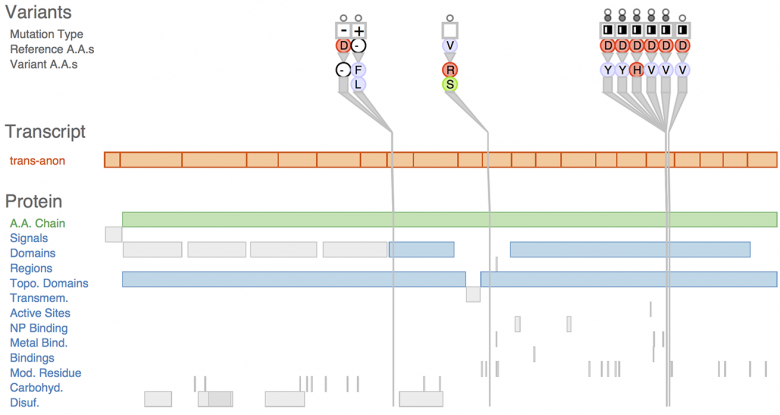Tamara Munzner is a professor at the University of British Columbia Department of Computer Science, and has been active in visualization since 1991. She was a research scientist from 2000 to 2002 at the Compaq Systems Research Center (the former DEC SRC), and earned her PhD from Stanford between 1995 and 2000. She was a technical staff member at the National Science Foundation Research Center for Computation and Visualization of Geometric Structures (The Geometry Center) at the University of Minnesota from 1991 to 1995. She has published over sixty-five papers, and co-chaired InfoVis and EuroVis. Her book Visualization Analysis and Design appeared in 2014, and she received the IEEE VGTC Visualization Technical Achievement Award in 2015. She served on the InfoVis Steering Committee 2010-2017, as chair of the VIS Executive Committee 2012-2017, and was a founding member of the BioVis Steering Committee 2012-2013. She is the editor of the AK Peters Visualization series with CRC Press. She has consulted for or collaborated with many companies including Agilent, AT&T Labs, Google, Microsoft, Silicon Graphics, and early-stage startups.

Variant View: Visualizing Sequence Variants in their Gene Context. Joel A. Ferstay, Cydney B. Nielsen, Tamara Munzner. IEEE Transactions on Visualization and Computer Graphics (19)12:2546 - 2555, 2013.
Research Interests
Tamara Munzner's current research interests include the development, evaluation, and characterization of visualization systems and techniques from both problem-driven and technique-driven perspectives. In problem-driven work, known as design studies, the focus is on designing systems to solve specific needs for a target group of real-world users. Tamara has worked on problem-driven visualization in a broad range of application domains, including genomics, evolutionary biology, fisheries management, environmental sustainability, large-scale system administration, web log analysis, networking, computational linguistics, data mining, and journalism. Her technique-driven interests include graph drawing and dimensionality reduction, with an emphasis on scalable algorithms. Her evaluation interests include both controlled experiments in a laboratory setting and qualitative studies in the field. She has a strong interest in the theoretical foundations of visualization, with a series of publications that describe and prescribe models and methods for visualization design and the research process itself, including a nested model of design and validation and methodology for design studies.
